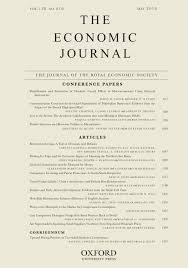
Morgan, J., Sisak, D. and Várdy, F. (2018). The Ponds Dilemma Economic Journal, 128(611):1634--1682.
-
Affiliated author
-
Publication year2018
-
JournalEconomic Journal
Is it better to be a big fish in a small pond or a small fish in a big pond? To find out, we study self-selection into contests. Our simple model predicts that: 1) entry into the big pond–in terms of show-up fees, number or value of prizes–is non-monotonic in ability; 2) entry into the more meritocratic pond is likewise non-monotonic, exhibiting two interior extrema and disproportionately attracting very low ability types; and 3) changes in rewards can produce unexpected effects. E.g., higher show-up fees may lower entry, while higher prizes or more meritocracy may lower the average ability of entrants.